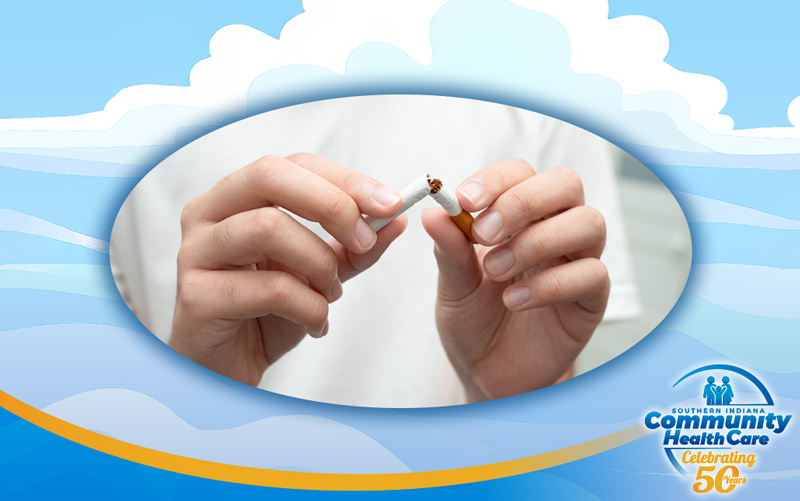Breaking the Habit – Finding Freedom from Smoking

By Curtis Thill, M.D.
When a patient tells me they want to quit smoking, I often take a moment to both encourage them for making a good decision and also to acknowledge what that really means. Breaking a complicated habit that may have existed over years – even decades – is no small decision.
In truth, making a personal commitment to stop smoking often paradoxically represents one of the hardest and most courageous steps a person can take for their health. But, as I encourage my patients, it’s one that has both immediate and long-term benefits.
Consider these facts: quitting smoking is more than breaking a habit. It involves breaking a relationship with something that has quietly shaped daily routines, emotions, and even who you are. Many people don’t fully appreciate the reality that nicotine is a powerful and highly addictive chemical compound.
Long-term smoking and exposure to nicotine literally changes your brain chemistry. Through long-term use, this powerful chemical actually weaves itself into the behavioral fabric of how you cope, relax, or reward yourself.
That’s a key reason why when people stop smoking, uncomfortable physical feelings and emotional changes quickly appear. The good news? It’s natural to feel both, especially in the first few days or weeks, and these conditions will go away in time.
The body’s challenge: adjusting to life without nicotine
There’s more good news when you quit smoking: literally within a few hours of quitting, your body begins the process of healing. Even within a half hour of your last cigarette or nicotine-saturated vape, your blood pressure and heart rate will move toward healthy levels. Carbon monoxide levels will start to drop, giving your body more access to energy-producing oxygen. By the next day, things will start to taste and smell better.
A challenge? Nicotine exposure helps produce the “feel-good” dopamine neurotransmitter in your brain. When that level drops, the result can be symptoms of irritability, restlessness, headaches, fatigue, or just feeling “off.”
For many people, the first two weeks are the toughest. But I remind my patients that these uncomfortable symptoms are simply signs your body is recalibrating and taking back control.
The mind’s challenge: breaking emotional ties
Here’s an important consideration: after the physical cravings fade (and they will fade), breaking the emotional ties to smoking can be tough. Why? For years, cigarettes may have marked your “thinking time” with coffee, a pleasant break from work stress, or an awarding companion on the drive home. When you find yourself in these situations after quitting, those small moments become powerful triggers to reach back for a smoke.
Many people find that when they stop smoking, they suddenly have to face stress, boredom, or loneliness without that familiar coping tool. That can feel unsettling—but it also represents an incredible opportunity to rediscover healthier new ways to find calm and comfort.
A new beginning
When people experience these physical and mental issues after quitting, some may erroneously suggest that the person step up the personal “willpower,” particularly if there is a momentary setback. “Willpower” is not the issue. Given the addictive potential of nicotine, successful cessation of smoking will probably be a series of challenges and achievements – everyone usually has a different experience.
Sometimes it takes several attempts before the habit is truly broken. Sometimes nicotine gum or other options can help.
Success in quitting is often more successful when it’s a team effort. Talk with your provider for options. You can also go online to websites like https://sichc.org/break-the-habit/ or https://smokefree.gov/ for a wealth of free useful information and encouragement.
If you’ve tried before and struggled, try again. A key fact? Every attempt brings you closer to success. Your provider, including the team at Southern Indiana Community Health Care, can walk alongside you with tools, medications, and encouragement that can make a difference.
You’ve got more strength than you think—and your future self will thank you for every breath that’s free of smoke.
A board- certified family physician, Dr. Curtis Thill has helped many people to successfully quit smoking during 30 years of practicing medicine in southern Indiana.
